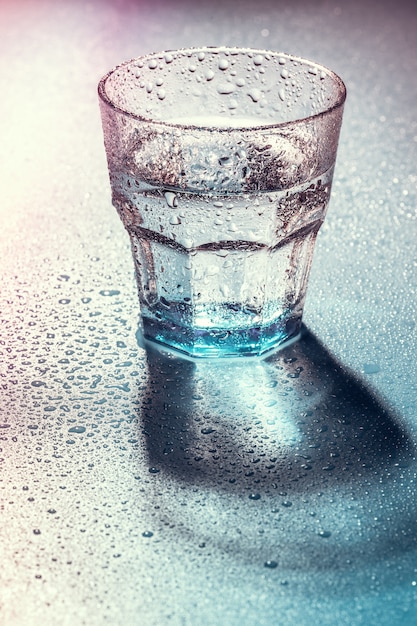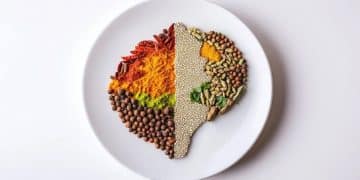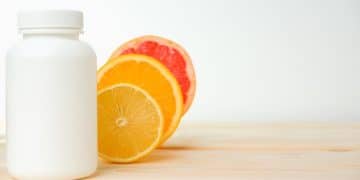Stay Hydrated: Your Daily Water Intake & Calculation

Staying adequately hydrated is crucial for maintaining optimal body function, influencing everything from cognitive performance to metabolic health, underscoring the vital need to understand and meet your daily water requirements.
In our fast-paced lives, it’s easy to overlook one of the most fundamental aspects of well-being: proper hydration. For many, drinking water often becomes an afterthought, something consumed only when thirst strikes. However, the benefits of understanding and actively managing your daily fluid intake, particularly in relation to Stay Hydrated: The Importance of Water Intake and How to Calculate Your Daily Needs, extend far beyond simply quenching thirst. This article aims to delve deep into the science behind hydration, providing actionable insights into why water is so vital and how you can accurately determine your body’s unique hydration requirements.
The Unseen Power of Water: Why Hydration Matters More Than You Think
Water is not merely a beverage; it is the silent, tireless worker maintaining the intricate machinery of the human body. Comprising roughly 60% of an adult’s body weight, it plays an indispensable role in almost every physiological process. Far from being just a thirst quencher, water acts as a crucial lubricant, a temperature regulator, and a transportation system for nutrients and waste products.
When we discuss the importance of water intake, we are touching upon a foundational pillar of health. Every cell, tissue, and organ in your body relies on water to function correctly. Without adequate hydration, even minor deficits can lead to a cascade of negative effects, subtly yet significantly impacting your overall well-being. From cognitive function to physical performance, the implications of dehydration are far-reaching and often underestimated.
Essential Bodily Functions Aided by Water
- Nutrient Transportation: Water carries essential nutrients, oxygen, and hormones to cells throughout the body. It acts as the medium through which these vital components reach their destinations, ensuring cellular health and function.
- Waste Removal: Your kidneys rely heavily on water to filter waste products from the blood and excrete them through urine. Adequate intake supports kidney health and prevents the accumulation of toxins.
- Temperature Regulation: Through processes like sweating, water helps regulate body temperature, preventing overheating during physical activity or in hot environments.
- Joint Lubrication and Cushioning: Water is a key component of synovial fluid, which lubricates joints, reducing friction and allowing for smooth movement. It also cushions organs and tissues, providing protective support.
Despite its critical roles, the subtle signs of mild dehydration are often missed or attributed to other factors. Headaches, fatigue, difficulty concentrating, and even irritability can frequently be indicators that your body needs more fluids. Recognizing these early warning signs is the first step towards proactive hydration management. The pervasive influence of water on our health makes it imperative to view hydration not as an optional add-on, but as a daily non-negotiable.
Moreover, the long-term implications of chronic, even mild, dehydration can be substantial. It can contribute to issues like kidney stones, urinary tract infections, and even impact cardiovascular health. Understanding water’s multifaceted contributions empowers us to prioritize it more effectively in our daily routines. It’s about optimizing performance and supporting longevity, ensuring that our bodies have the necessary resources to not just survive, but to thrive in every aspect of life.
Dehydration Demystified: Recognizing the Signs and Risks
Dehydration occurs when you use or lose more fluid than you take in, and your body doesn’t have enough water and other fluids to carry out its normal functions. While severe dehydration is an obvious medical emergency, mild to moderate dehydration is far more common and its symptoms can often be subtle, making them easy to dismiss or misattribute. Understanding these signs is crucial for immediate intervention and maintaining optimal health.
The body sends various signals when it’s experiencing a fluid deficit. Pay close attention to these cues, as they are your body’s way of asking for water. Ignoring these signals can lead to a range of increasingly uncomfortable and potentially dangerous symptoms. It’s a continuous balancing act for the body, and even a small drop in fluid levels can disrupt this delicate equilibrium.
Common Dehydration Symptoms
- Thirst: While obvious, waiting until you feel thirsty often means you are already mildly dehydrated. It’s a late-stage indicator.
- Dark Urine: Healthy urine is pale yellow. Darker, more concentrated urine is a clear sign that you need to increase your fluid intake.
- Fatigue and Reduced Energy: Even slight dehydration can lead to feelings of tiredness, sluggishness, and a general lack of energy.
- Headaches and Dizziness: These are common symptoms often mistaken for other ailments, but frequently resolve with adequate hydration.
- Dry Mouth and Skin: A reduction in saliva production and dry, inelastic skin are physical manifestations of fluid loss.
Beyond these immediate symptoms, prolonged or severe dehydration poses significant health risks. It can strain the kidneys, contributing to acute kidney injury or chronic kidney disease. Dehydration can also lead to electrolyte imbalances, which are critical for nerve and muscle function, potentially causing muscle cramps, weakness, or even seizures in extreme cases. For athletes, even mild dehydration can severely impair performance, affecting strength, endurance, and coordination.

It’s particularly critical for vulnerable populations, such as infants, young children, older adults, and individuals with chronic illnesses, to monitor their hydration status closely. Their bodies may not regulate fluid effectively, or they may have a diminished sense of thirst. Recognizing and addressing dehydration promptly is a cornerstone of preventative health. By staying attuned to our bodies’ signals and understanding the potential risks, we can effectively manage our hydration and mitigate these health concerns, promoting a more vibrant and energetic life.
Calculating Your Daily Water Needs: Beyond the Eight Glasses Rule
For decades, the advice to drink “eight glasses of water a day” has been a widely circulated hydration guideline. While well-intentioned, this one-size-fits-all approach often falls short because individual water needs vary significantly based on a multitude of factors. Calculating your daily water intake is a personalized endeavor, requiring consideration of your body weight, activity level, climate, and overall health status.
The “eight glasses” rule serves as a simple starting point, but true hydration optimization demands a more nuanced calculation. Understanding the variables that influence your fluid requirements is key to ensuring you’re neither under-hydrating nor over-hydrating, both of which can have negative health implications. This personalized approach empowers you to meet your body’s specific demands effectively.
Key Factors Influencing Water Needs
- Body Weight: Generally, heavier individuals require more water than lighter individuals. A common guideline is to drink half an ounce to an ounce of water for each pound of body weight.
- Activity Level: Exercise significantly increases fluid loss through sweat. Athletes and individuals engaging in strenuous physical activity will need substantially more water to replenish lost fluids and maintain performance.
- Climate: Living in hot or humid climates, or at high altitudes, increases fluid evaporation from the skin and respiration, necessitating higher water intake.
- Health Status: Certain health conditions, such as fever, vomiting, diarrhea, or specific chronic diseases like diabetes or kidney disease, can alter fluid requirements. Pregnant and breastfeeding women also have increased hydration needs.
While precise calculation can be complex, a practical starting point is the “half your body weight in ounces” rule. For example, if you weigh 150 pounds, you would aim for 75 ounces of water daily. This baseline can then be adjusted upwards based on activity level, climate, and specific health factors. Listening to your body’s thirst signals is also paramount, but remember that thirst often indicates you’re already in a state of mild dehydration. Integrating other sources of fluids, such as water-rich foods, also contributes to your total intake, which we will explore further.
Ultimately, the goal is to develop an intuitive understanding of your body’s unique hydration needs. This isn’t about rigid adherence to a number, but rather about creating a personalized hydration strategy that supports your health goals and lifestyle. By factoring in these individual considerations, you can move beyond generic guidelines and truly optimize your daily water intake for peak performance and well-being.
Smart Hydration Strategies: Making Water a Daily Habit
Knowing you need to drink more water is one thing; consistently doing it is another. Integrating adequate hydration into your daily routine requires intentional strategies and often, a shift in habits. It’s not about forcing yourself to gulp down large volumes at once, but rather about making water consumption a natural and effortless part of your day. The key lies in consistent, small actions that accumulate over time.
Many people struggle with consistent hydration due to forgetfulness, a dislike for plain water, or simply not prioritizing it alongside other daily tasks. However, with a few practical and adaptable approaches, you can transform your water intake from a chore into an ingrained habit, reaping the numerous health benefits that follow.
Practical Tips for Boosting Water Intake
- Start Your Day Hydrated: Drink a glass of water first thing in the morning, even before coffee or breakfast. This kickstarts your metabolism and rehydrates your body after hours of sleep.
- Carry a Reusable Water Bottle: Having water readily accessible throughout the day serves as a constant reminder and makes it easier to sip frequently. Choose a bottle you like and refill it often.
- Set Reminders: Use smartphone apps, alarms, or even sticky notes to prompt yourself to drink water at regular intervals, especially if you get engrossed in work or other activities.
- Infuse Your Water: If plain water isn’t appealing, add slices of fruit (lemon, lime, berries), cucumber, or herbs (mint) for natural flavor without added sugars.
- Drink Before Meals: Having a glass of water before each meal not only contributes to your daily intake but can also aid in digestion and help manage appetite.
Beyond these direct strategies, consider your overall fluid consumption. While water is superior, beverages like unsweetened tea, coffee (in moderation), and sparkling water can contribute to your daily intake. Remember, however, that sugary drinks or excessive caffeine can have a dehydrating effect. Moreover, incorporating water-rich foods like fruits and vegetables—such as watermelon, oranges, spinach, and celery—can significantly boost your hydration levels.

Making hydration a conscious and consistent habit involves a combination of planning, making water easily accessible, and finding ways to make it enjoyable. It’s about building a sustainable routine that supports your body’s needs without feeling burdensome. By implementing these smart strategies, you can effortlessly cultivate a daily hydration practice that contributes significantly to your energy levels, cognitive function, and overall physical health, transforming a simple act into a powerful health tool.
The Impact of Hydration on Specific Body Systems
While we’ve broadly discussed water’s importance, it’s worth examining its specific impact on various bodily systems. Hydration isn’t just about feeling good; it’s about optimizing the performance and health of individual organs and functions. From the brain to the digestive tract, water plays a crucial, often underappreciated, role in keeping everything running smoothly.
Understanding these detailed systemic impacts can serve as a powerful motivator for consistent hydration. It moves beyond a general understanding to a more specific appreciation of how vital water is to maintaining the intricate biological processes that underpin our health and well-being. Each system relies on an adequate water supply to function at its peak, and even minor deficiencies can lead to noticeable impairments.
Systemic Benefits of Optimal Hydration
- Brain Function and Cognition: The brain is about 75% water. Proper hydration supports cognitive functions like memory, concentration, and mood. Dehydration can lead to impaired focus, reduced alertness, and headaches.
- Digestive System: Water helps break down food, allowing nutrients to be absorbed effectively. It also aids in preventing constipation by softening stool and promoting regular bowel movements.
- Circulatory System: Water is essential for maintaining blood volume, which ensures efficient transport of oxygen and nutrients throughout the body. Adequate hydration helps maintain healthy blood pressure and cardiovascular function.
- Kidney Health: As mentioned, kidneys rely on water to filter waste. Proper hydration dilutes urine, reducing the risk of kidney stones and supporting overall renal health.
- Skin Health: While water won’t eliminate wrinkles, adequate hydration helps maintain skin elasticity and moisture, contributing to a healthier, more supple appearance.
Beyond these, water is integral to muscle function, helping to transport electrolytes and prevent cramps during physical activity. It also plays a role in regulating the immune system, ensuring that cells responsible for fighting off infections are adequately supported. Even seemingly minor symptoms like fatigue or muscle soreness can often be traced back to insufficient fluid intake, underscoring water’s pervasive influence.
For athletes, maintaining optimal hydration is critical for performance and recovery, impacting everything from muscular endurance to temperature regulation. For those managing chronic conditions, appropriate fluid intake can be a key component of their treatment plan, helping to alleviate symptoms and support overall health. Recognizing water as a fundamental requirement for the healthy functioning of all major body systems reinforces its status as an indispensable nutrient. By understanding these specific benefits, we can make more informed choices about our daily habits, ensuring our bodies have the necessary support to perform at their best.
Potential Pitfalls: Over-hydration and Water Intoxication
While the focus is often on the dangers of dehydration, it’s equally important to be aware of the less common but potentially serious issue of over-hydration, also known as water intoxication or hyponatremia. This occurs when you drink too much water too quickly, diluting the sodium levels in your blood to dangerously low concentrations. Sodium is an essential electrolyte that helps regulate fluid balance inside and outside cells, and its imbalance can have severe consequences.
Though rare in healthy individuals with normal kidney function, water intoxication can be a concern for endurance athletes, particularly during marathons, or individuals with certain medical conditions that affect kidney function. It can also occur in cases of excessive water intake related to mental health conditions or specific medical advice that is misinterpreted. Understanding the risk factors and symptoms is crucial for preventing this potentially life-threatening condition.
Symptoms and Risks of Over-hydration (Hyponatremia)
- Mild Symptoms: Nausea, vomiting, headache, and confusion are early indicators. These can often be mistaken for symptoms of dehydration, which makes proper diagnosis critical.
- Severe Symptoms: As sodium levels drop further, more severe symptoms can emerge, including muscle weakness, cramps, seizures, loss of consciousness, and in extreme cases, brain swelling, coma, and even death.
- Risk Factors: Endurance athletes (who may drink large volumes of plain water without sufficient electrolyte replacement), individuals with kidney problems, heart failure, or certain liver diseases, and those taking specific medications (e.g., some diuretics or antidepressants) are at higher risk.
- Speed of Consumption: Drinking extremely large quantities of water in a short period (e.g., several liters in an hour) is particularly risky, as the kidneys cannot excrete water fast enough to maintain sodium balance.
The kidneys of a healthy adult can typically process about 0.8 to 1.0 liters of water per hour. Exceeding this rate persistently can put you at risk. For most people, simply drinking to thirst and monitoring urine color is sufficient to avoid both dehydration and over-hydration. It’s a testament to the body’s remarkable ability to self-regulate when given appropriate cues.
However, for specific populations, especially endurance athletes, balancing water intake with electrolyte replacement is paramount. Sports drinks containing sodium and other electrolytes can be beneficial during prolonged, intense exercise to prevent electrolyte imbalances. Consulting with a healthcare professional or a sports nutritionist can provide tailored advice for those with specific concerns or high activity levels. The ultimate goal is balanced hydration – enough to support all bodily functions without tipping into dangerous extremes.
Hydration for Different Lifestyles: Tailoring Your Intake
Hydration is not a static concept; it adapts to your life. The amount of water you need isn’t just about your base calculation but also how your daily activities, diet, and environment influence your fluid balance. Tailoring your water intake to your specific lifestyle ensures that your body consistently receives what it needs, whether you’re a desk worker, an avid runner, or navigating a busy travel schedule.
A personalized approach to hydration recognizes that a construction worker on a hot day will have vastly different needs than someone working remotely in an air-conditioned office. Similarly, individuals following specific diets or living with certain health conditions will also need to adjust their fluid intake accordingly. This adaptability is key to sustainable and effective hydration.
Hydration in Specific Scenarios
- Athletes and Active Individuals: High levels of physical activity significantly increase fluid loss through sweat. Athletes need to pre-hydrate before exercise, hydrate during (especially for long durations), and rehydrate afterward, often with electrolyte-containing fluids to replace lost salts.
- Office Workers and Sedentary Lifestyles: While not sweating profusely, indoor environments often have low humidity, which can lead to insensible (unnoticed) water loss. Regular sips throughout the day are crucial, perhaps setting a reminder to drink every hour.
- Travelers: Air travel, especially long flights, can be very dehydrating due to low cabin humidity. Drinking plenty of water before, during, and after flights is essential. When traveling to different climates, adjust intake accordingly.
- Pregnant and Breastfeeding Women: Pregnancy increases blood volume and supports amniotic fluid production, while breastfeeding requires significant fluid to produce milk. Both stages necessitate a higher daily water intake.
- Individuals with Illnesses: During fever, vomiting, or diarrhea, fluid loss is accelerated, making diligent rehydration critical. Conversely, those with certain kidney or heart conditions might need to restrict fluids under medical supervision.
Dietary choices also play a role. A diet rich in fruits and vegetables, which have high water content, contributes significantly to overall fluid intake. Conversely, a diet high in processed foods and sodium can increase the body’s water demand. Similarly, alcohol and excessive caffeine are diuretics, meaning they cause increased urination and can contribute to dehydration.
The key takeaway is that effective hydration is dynamic. It calls for an awareness of your activities, environment, and physical state throughout the day. Regularly assessing your symptoms, monitoring urine color, and making conscious adjustments will ensure that you remain optimally hydrated, supporting your health and performance no matter what your lifestyle demands.
| Key Point | Brief Description |
|---|---|
| 💧 Body Function | Water is vital for 60% of body weight, aiding nutrient transport, waste removal, and temperature regulation. |
| 🚨 Dehydration Signs | Recognize thirst, dark urine, fatigue, headaches, dry mouth, and skin as key indicators. |
| 📊 Personalized Needs | Calculate based on body weight, activity level, climate, and health status, moving beyond generic rules. |
| ✅ Smart Strategies | Incorporate habits like drinking first thing, carrying a bottle, setting reminders, and infusing water for flavor. |
Frequently Asked Questions About Hydration
▼
While often cited, the “eight glasses a day” rule is general. A more personalized approach suggests aiming for half an ounce to an ounce of water per pound of body weight. Adjust this based on your activity level, climate, and overall health conditions. Listen to your body and monitor your urine color; pale yellow is ideal.
▼
Yes, fluids from other beverages like unsweetened tea, coffee (in moderation), and sparkling water contribute to your daily intake. Many fruits and vegetables, such as watermelon, spinach, and oranges, also contain significant amounts of water and are an excellent way to boost your hydration naturally. However, plain water remains the best choice.
▼
Common signs of dehydration include thirst, dark yellow or amber urine, fatigue, decreased urination, headaches, dry mouth, and dizziness. In more severe cases, confusion and rapid heart rate can occur. It’s important to drink water regularly throughout the day and not wait until you feel thirsty, as thirst is a late sign.
▼
While uncommon for healthy individuals, drinking excessive amounts of water rapidly can lead to water intoxication, or hyponatremia. This occurs when sodium levels in the blood become dangerously diluted, which can cause symptoms like nausea, headaches, confusion, and in extreme cases, seizures or coma. This is mostly a risk for endurance athletes or individuals with certain medical conditions.
▼
Proper hydration is critical for athletic performance. Even mild dehydration can lead to reduced strength, endurance, and coordination. Water helps regulate body temperature, transport nutrients to muscles, and lubricate joints. Athletes need to consume more fluids than sedentary individuals, often requiring electrolyte replacement to compensate for heavy sweating during prolonged or intense exercise.
Conclusion
The journey to optimal health is paved with many essential practices, and among the most fundamental is proper hydration. Understanding that Stay Hydrated: The Importance of Water Intake and How to Calculate Your Daily Needs is far more than a simple suggestion—it’s a critical component of human physiology—empowers us to make conscious choices for our well-being. By moving beyond generic guidelines and embracing a personalized approach to calculating our daily fluid requirements, we can ensure our bodies function at their peak. From enhancing cognitive function to improving physical performance and supporting vital organ systems, water is the often-unsung hero of our health. Embrace water as your ally, make hydration a consistent and mindful practice, and discover the profound positive impact it will have on every aspect of your life.





